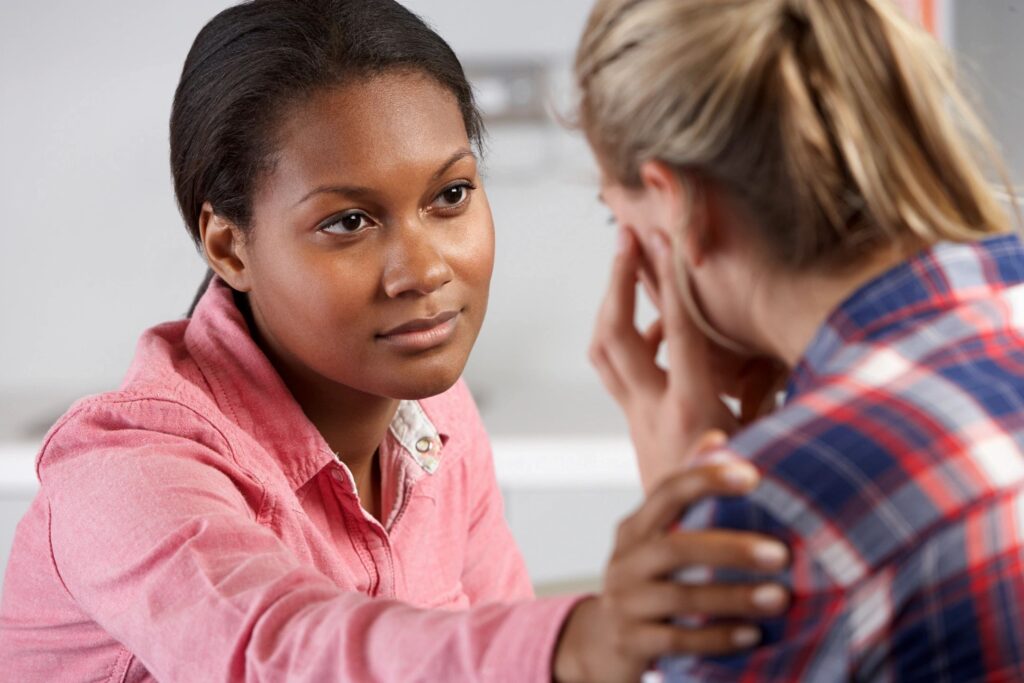Clinical Psychology
Like Narcissistic Parent, Like Narcissistic Child?
“You have your mother’s nose, and your father’s narcissism!” For better or worse, through genes or through environment, parents pass along many things to their children. And one of those might be narcissistic traits, as highlighted in a new paper titled The Apple of Daddy’s Eye: Parental Overvaluation Links Narcissistic Traits of Father and Child.…
Read MoreWhy Do People Watch Porn?
Of all the questions you might ask about pornography, “why do people watch it?” isn’t necessarily the first that comes to mind. That part seems relatively self-explanatory. But psychologists like to go beyond the obvious in understanding human behavior – hence a new study that’s out with the title Why Do People Watch Pornography? The…
Read MoreTherapy Can Be as Effective Online as In Person
From Zoom happy hours to remote learning, one thing most of us have discovered this year is that doing something “virtually” isn’t always as good as the real, in-person thing. But does that hold true for therapy? Even before the pandemic, psychology researchers were interested in the potential of online interventions given the convenience and…
Read MoreCensus Bureau Data Shows 2020 Brought a Spike in Anxiety and Depression
From posttraumatic stress to sleep disturbances, recent studies have begun to confirm that the coronavirus pandemic has brought a range of mental health consequences. Now, an analysis of data from the US Census Bureau provides what appears to be some of the most robust evidence yet that 2020 saw a rapid decline in the United…
Read More3 Traits That Might Help With Jobs Involving Trauma
Certain jobs put an extra burden on the mental health of people who do them because they frequently involve dealing with traumatic situations. Not everyone who does potentially traumatic jobs experiences negative mental health effects, though. So why are some people able to take on these jobs and still enjoy relatively good mental health? A…
Read MoreDo Different Addictions Have the Same Risk Factors?
From substance use to compulsive behaviors, addiction can take a variety of forms. Given that range of possible addictions, psychology researchers are still trying to figure out the extent to which different types of addictive behaviors share similar roots. A new study from researchers at Bar-Ilan University and UCLA provides some new data for exploring…
Read MoreAn Intervention for Imposter Syndrome
Do you feel like a fraud? Well, you might be for all I know. I’m not in a position to say that you aren’t. But there’s another possible explanation: you might have imposter syndrome. Imposter syndrome occurs when people believe their accomplishments aren’t truly deserved and that they might be exposed as frauds. As I’ve…
Read MoreStudy Shows Uptick in Posttraumatic Stress Symptoms During Lockdown
In March, as public health officials around the world were dialing up measures against COVID-19’s spread, a group of researchers published an article in The Lancet highlighting the potential psychological consequences of widespread quarantine. When that article came out, most of the available evidence was from past epidemics. The authors pointed out that little was…
Read MoreWriting Therapy to Develop “Good” Rumination
Repetitively turning over negative thoughts, or ruminating, is a behavior that has been explored as a target for therapy in conditions like depression. After all, it’s not hard to imagine that getting stuck in a cycle of replaying negative thoughts might harm mental health. So what’s the best way to stop ruminating on negative thoughts?…
Read MoreReflecting on Life Lessons Can Help With Aging
In a general sense, life looks the same for all of us: stuff happens to us. We learn from that stuff, sometimes. We get older. Ideally, we have a sense that there’s some progression to our lives. Learning from our past experiences helps us live our lives more effectively as we get older, and eventually…
Read More








